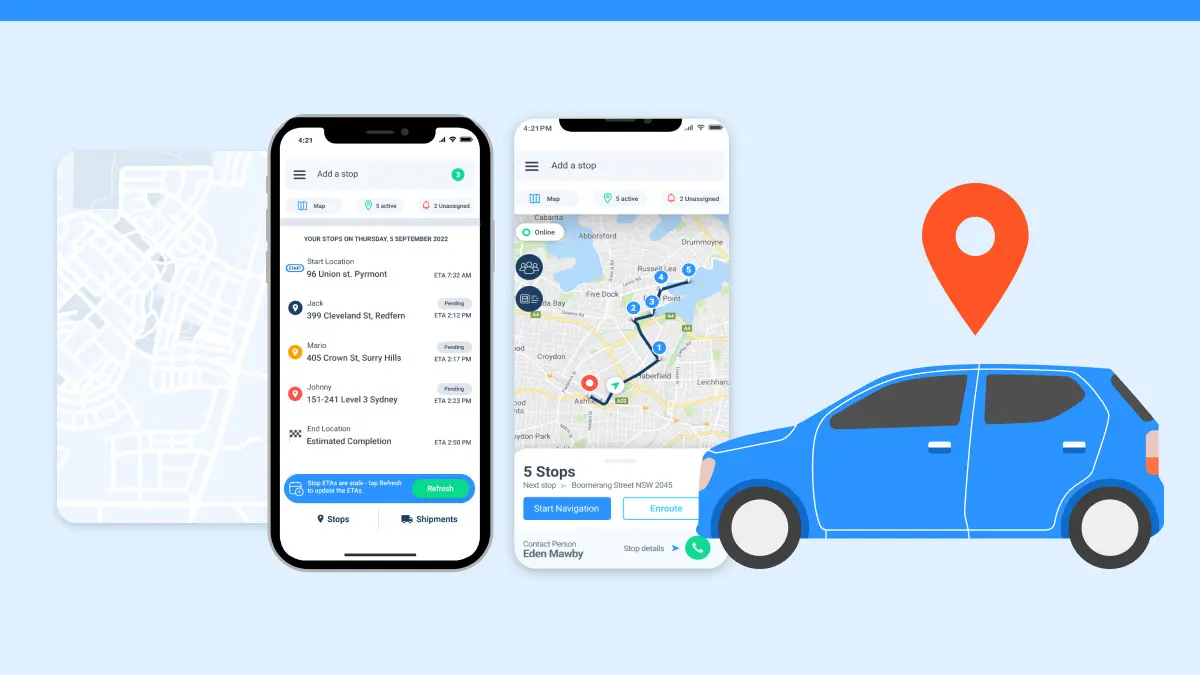Understanding GPS Tracking: Modern Technology, Applications, and Benefits
Understanding GPS Tracking: Modern Technology, Applications, and Benefits
Blog Article
Browsing the Future of GPS Monitoring: Developments, Obstacles, and Opportunities Ahead
As we stand at the crossroads of technological innovations and societal ramifications, the landscape of GPS tracking is poised for a transformative trip ahead. With fantastic technology comes wonderful responsibility, as information personal privacy worries loom large and safety and security obstacles in General practitioner tracking raise pertinent inquiries concerning guarding sensitive information.
Advancement of GPS Technology
The Evolution of GPS Innovation has been marked by substantial improvements in accuracy, protection, and performance for many years. At first created for armed forces purposes, general practitioner technology has actually advanced to come to be a common device in various sectors, including transportation, logistics, agriculture, and individual navigating. Early GPS systems were identified by limited protection, reduced precision, and bulkier equipment needs. However, with continuous technical developments, GPS has transitioned to more effective and exact systems that provide international coverage and improved precision.
One key landmark in the advancement of GPS innovation was the development of Careful Accessibility (SA) in the 1990s, which intentionally degraded the accuracy of civilian general practitioner signals. The discontinuation of SA in 2000 considerably boosted GPS precision for private customers. Succeeding improvements, such as the release of additional satellite constellations like Galileo and BeiDou, have actually further improved GPS protection and accuracy, making it a vital device in daily life. As general practitioner technology remains to develop, we can expect more enhancements in insurance coverage, accuracy, and effectiveness, opening up new opportunities for innovation and applications throughout various markets.
Real-Time Tracking Innovations
Structure on the developments in GPS modern technology that have changed precision and protection, real-time monitoring has actually become a crucial location of technology with extensive ramifications across various sectors. Real-time monitoring improvements make it possible for companies and companies to monitor properties, lorries, and employees immediately, offering valuable insights for decision-making processes - gps tracking. By leveraging real-time data, companies can improve functional efficiency, improve customer care, and make certain the safety and safety of their possessions
One of the essential innovations in real-time monitoring is the integration of expert system and artificial intelligence formulas, which allow anticipating analytics and anomaly detection. These abilities enable positive maintenance scheduling, course optimization, and threat mitigation methods. Additionally, the advancement of real-time monitoring systems has actually brought about the growth of personalized control panels and mobile applications, empowering individuals to access essential details anytime, anywhere.
Information Privacy Worries

Information privacy concerns incorporate different facets, including the storage, sharing, and retention of location information. Businesses need to implement durable safety and security steps to protect general practitioner monitoring data from cyber risks and information violations. Clear plans pertaining to information collection methods and the purpose of monitoring are vital to build depend on with consumers and make sure conformity with information protection guidelines.
Safety And Security Challenges in GPS Monitoring
Attending to information privacy problems in GPS tracking is elaborately connected to minimizing the safety and security tests that arise from prospective vulnerabilities in the technology. One of the primary try these out protection challenges in GPS tracking is the danger of unauthorized access to delicate location data.
Another protection difficulty is the possibility for obstructing or spoofing general practitioner signals. By conflicting or relaying false signals with reputable ones, malicious actors can deceive GPS receivers and control area information. This positions threats not only for individual users however additionally for armed forces and governmental applications that depend on precise positioning info. Carrying out durable security, verification procedures, and signal confirmation protocols are crucial action in addressing these safety and security obstacles in GPS monitoring.
Arising Opportunities in the Industry
The blossoming field of GPS tracking technology offers a myriad of encouraging possibilities for sector development and technology. One vital possibility lies in the development of General practitioner tracking applications beyond standard markets. GPS tracking can change individual care by allowing remote surveillance of essential indicators and making certain timely clinical assistance.
An additional substantial possibility in the GPS monitoring industry is the assimilation of advanced analytics and man-made knowledge. By leveraging these modern technologies, businesses can get valuable insights from GPS information to boost functional efficiency, improve decision-making processes, and deal personalized services to clients. Additionally, the raising demand for connected gadgets and IoT services provides a ripe chance for general practitioner monitoring firms to expand their offerings and develop ingenious services that satisfy a much more connected world. By taking advantage of these emerging opportunities, general practitioner tracking business can place themselves for continual growth and success in the vibrant landscape of the sector.
Final Thought
Finally, the future of GPS tracking is marked by continual evolution and advancement in technology. Real-time monitoring developments and emerging possibilities existing encouraging potential customers for the sector. Nevertheless, data privacy problems and security difficulties stay significant hurdles that require to be dealt with. As the sector progresses, navigating these difficulties will certainly be essential to ensure the ongoing development and success of general practitioner monitoring technology.
With wonderful innovation comes terrific obligation, as data privacy problems impend big and safety difficulties in General practitioner monitoring raise significant questions concerning safeguarding delicate info.With the fast expansion of General practitioner he said monitoring modern technology in various industries, addressing data privacy issues has actually become a critical important for both consumers and companies alike. The collection of area data through General practitioner monitoring raises considerable privacy problems, as it makes it possible for the surveillance of people' habits and movements. Organizations utilizing GPS tracking have to prioritize securing this data to protect against unapproved access or abuse that can endanger individuals' privacy rights.
Organizations have to implement robust security procedures to secure General practitioner monitoring data from cyber dangers and data violations.
Report this page